Are you sure you are using the correct naming semantics. This is the error you get if a log source has been created with that name on that machine. As alternative you can use System.Management and query directly.
Below is a function I have used in the past...NOTE : ServerLogEntry is an object from my application domain.
public List<ServerLogEntry> GetLastestServerLogEntries(int number)
{
string logSource = this.GetEventLogSourceName();
string Query = String.Format("SELECT * FROM Win32_NTLogEvent WHERE Logfile = 'Application' AND SourceName='{0}'", logSource);
List<ServerLogEntry> logs = new List<ServerLogEntry>();
ManagementObjectSearcher mos = new ManagementObjectSearcher(Query);
foreach (ManagementObject mo in mos.Get().Take(number).ToList())
{
ServerLogEntry log = new ServerLogEntry();
log.Category = Convert.ToInt32(mo["Category"]);
log.CategoryString = SafeString(mo["CategoryString"]);
log.ComputerName = SafeString(mo["ComputerName"]);
log.EventCode = Convert.ToInt32(mo["EventCode"]);
log.EventIdentifier = Convert.ToInt32(mo["EventIdentifier"]);
log.EventType = Convert.ToInt32(mo["EventType"]);
log.EventTypeName = this.ConvertLogEventType(log.EventType);
log.LogFile = SafeString(mo["LogFile"]);
log.Message = SafeString(mo["Message"]);
log.RecordNumber = Convert.ToInt32(mo["RecordNumber"]);
log.SourceName = SafeString(mo["SourceName"]);
log.TimeGenerated = this.ConvertLogDateTime(SafeString(mo["TimeGenerated"]));
log.TimeWritten = this.ConvertLogDateTime(SafeString(mo["TimeWritten"]));
log.Type = SafeString(mo["Type"]);
log.User = SafeString(mo["User"]);
logs.Add(log);
}
return logs.OrderByDescending(p => p.TimeGenerated).ToList();
}
private string SafeString(object propertyValue)
{
return (propertyValue != null) ? propertyValue.ToString() : "";
}
private string ConvertLogEventType(int eventType)
{
switch (eventType)
{
case 1: return "Error";
case 2: return "Warning";
case 3: return "Information";
case 4: return "Security Audit Success";
case 5: return "Security Audit Failure";
default: return "Unknown";
}
}
private DateTime ConvertLogDateTime(string entryTimeGeneratedString)
{
//TimeGenerated, for example: 20071107135007.000000-300
//
// yyyy mm dd hh mm ss.milisec
// 0123 45 67 89 01 23
// convert to new DateTime(yyyy,month,day,hour,minute,seconds)
return new DateTime(Convert.ToInt32(entryTimeGeneratedString.Substring(0, 4)),
Convert.ToInt32(entryTimeGeneratedString.Substring(4, 2)),
Convert.ToInt32(entryTimeGeneratedString.Substring(6, 2)),
Convert.ToInt32(entryTimeGeneratedString.Substring(8, 2)),
Convert.ToInt32(entryTimeGeneratedString.Substring(10, 2)),
Convert.ToInt32(entryTimeGeneratedString.Substring(12, 2)));
}
Here is the native structure returned -->
/*class Win32_NTLogEvent
{
uint16 Category;
string CategoryString;
string ComputerName;
uint8 Data[];
uint16 EventCode;
uint32 EventIdentifier;
uint8 EventType;
string InsertionStrings[];
string Logfile;
string Message;
uint32 RecordNumber;
string SourceName;
datetime TimeGenerated;
datetime TimeWritten;
string Type;
string User;
};*/
